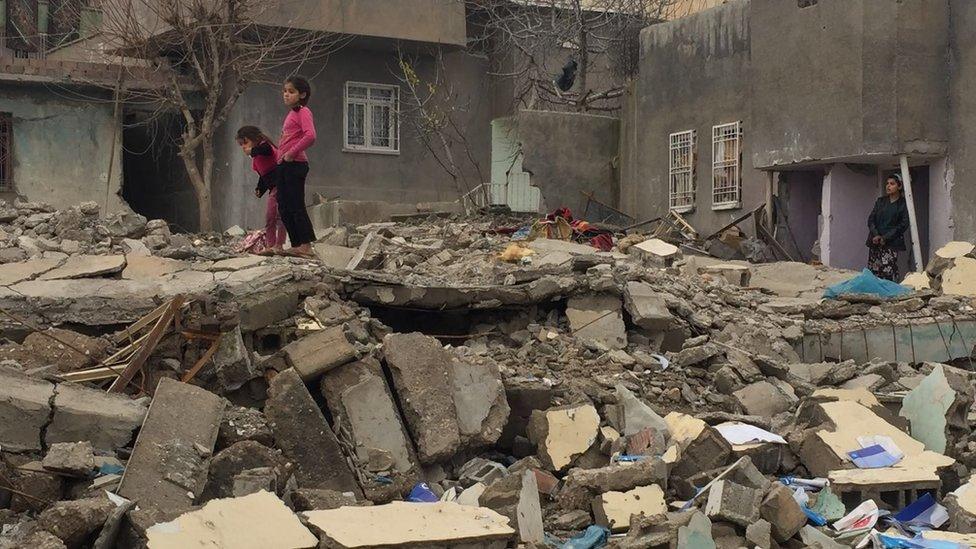US-Turkey: The strained alliance
- Published
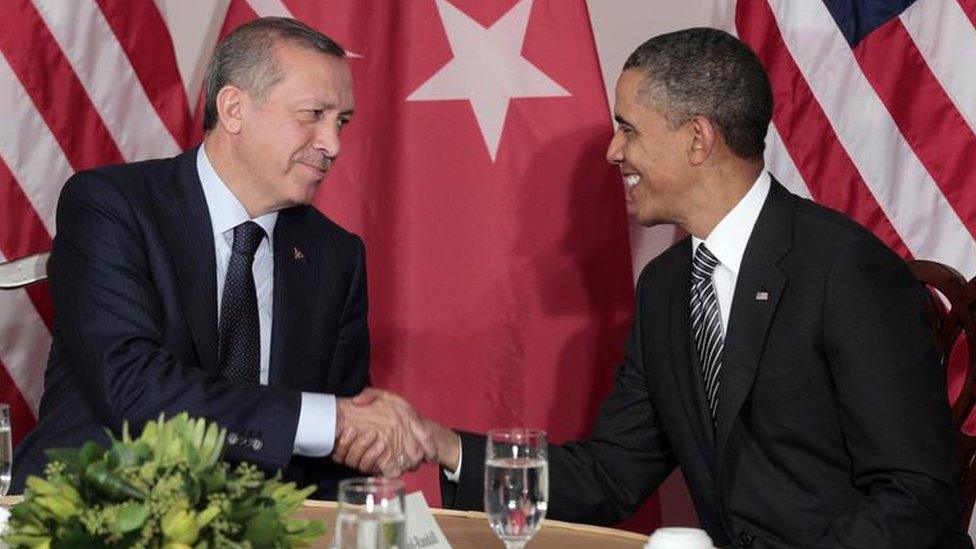
Presidents Erdogan and Obama have an uneasy relationship
It's a diplomatic relationship that is deeply in crisis, but one that remains of crucial importance to both countries.
Rarely have relations between the US and one of its key Nato allies been so poor as those between Washington and Ankara.
"Damage limitation" may be an understatement to describe one of the main aims behind the visit the of the Turkish President, Recep Tayip Erdogan to the US this week.
It has become increasingly clear what both these presidents think of each other.
In his recent study of Barack Obama's foreign policy, external - the product of multiple interviews with the president - Jeffrey Goldberg of The Atlantic summed up Mr Obama's view of his Turkish counterpart in terms of disappointed expectations.
Goldberg notes that "early on", Obama saw Erdogan "as the sort of moderate Muslim leader who would bridge the divide between East and West - but Obama now considers him a failure and an authoritarian, one who refuses to use his enormous army to bring stability to Syria."
Whatever Mr Obama may think about his Turkish counterpart in private, Mr Erdogan has been much more outspoken in public.
Just one example - earlier this month he condemned the Obama Administration's support for Kurdish fighters in Syria, insisting that Washington's inability to grasp their true nature had turned the region into "a sea of blood".
Syrian crisis
The differences between Washington and Ankara are various, not least reflecting US disappointment at the current drift in Turkish domestic affairs.
But it is the Syrian crisis, and in particular the role of Kurdish militias in the fight against so-called Islamic State (IS) that has crystallised US-Turkish tensions.
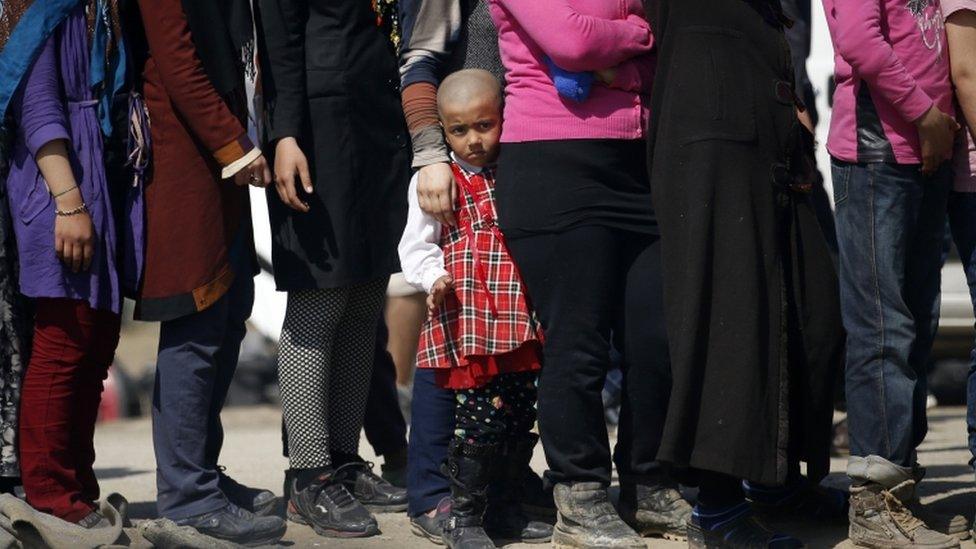
Many migrants continue to arrive in Turkey on their way to Europe
US and Turkish disagreements over Syria reflect fundamental differences on both strategy and goals.
From the outset Turkey backed rebel groups in Syria opposed to the Assad regime.
Indeed his removal became a strategic necessity for the Turkish government; the only way they believed stability could be restored.
Turkey has been directly hit by the crisis - not just by the spill-over of terrorism across its own borders. It has also been forced to contend with a huge wave of Syrian refugees.
That is one of the reasons why the Turks have backed the idea of establishing "safe zones", external inside Syria; areas that could be protected by US and allied air power as well as forces on the ground.
That idea has been consistently opposed by the Obama administration.
The US was no friend of President Assad but its focus was elsewhere - the struggle against IS in both Syria and Iraq.
Given the absence of any clear alternative governing arrangements in Syria, Iraq appeared to be Washington's priority, while it helped arm rebel groups in Syria its efforts initially had little impact.
Strategic importance
Turkey, with its long land border with both Syria and Iraq was clearly of huge strategic importance in Washington's anti-IS campaign.
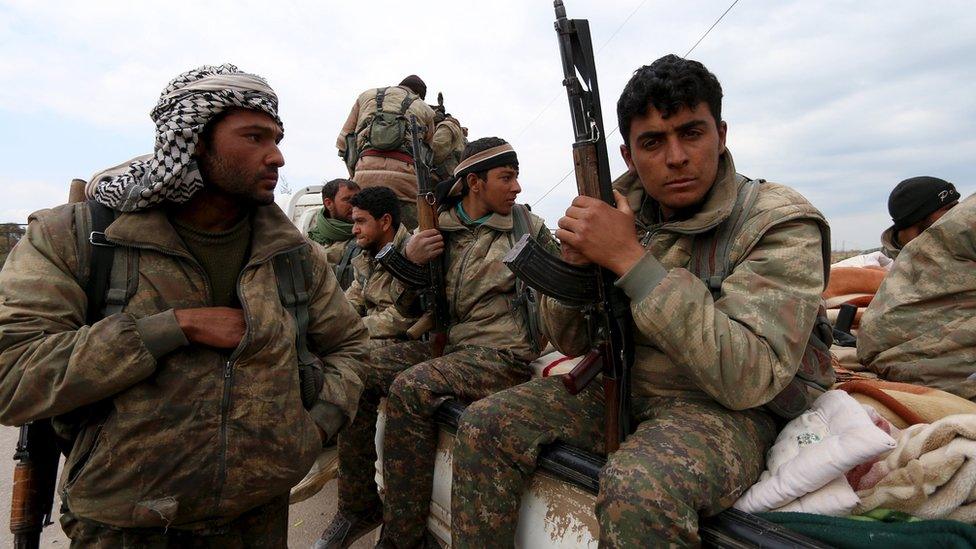
The Kurds have emerged as a key ally of the US-led coalition in its battle against IS
The US pressed to use Turkish air bases though for a long period the Turks were reluctant.
When they did finally approve their use it appeared to represent to many observers something of a quid pro quo for the US turning a blind eye to Turkish strikes against the Kurds.
For it is Kurdish dynamics, rather more than IS, that has dominated thinking in Ankara. Kurdish fighters have been among the most successful ground forces battling IS.
In the process they have received considerable material support from Washington.
This has been like a red-rag to a bull for the Turks who, already battling a Kurdish insurgency within Turkey, fear any Kurdish successes that might encourage Kurdish national aspirations.
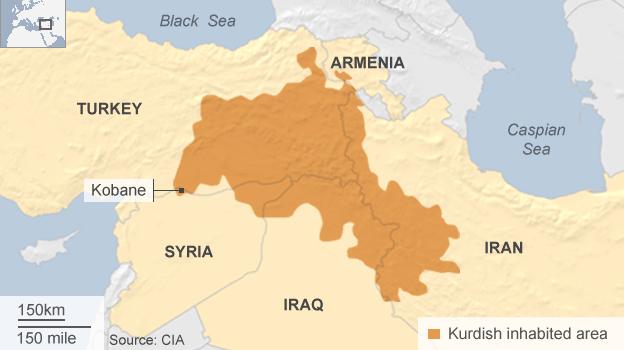
So Ankara and Washington are allies, but at the same time pretty much at loggerheads over Syria.
Russia's military intervention on the side of President Assad only added a new complication.
Turkey's shooting down of a Russian jet, external that briefly intruded into its air space prompted an ambivalent reaction from its NATO allies. In public there was strong support for Turkey.
But in private many of them were alarmed at what they saw as a strand of recklessness in Ankara's behaviour.
US fighters were briefly deployed to patrol Turkish air space but were almost as quickly withdrawn.
US-Turkish strategic differences over Syria are one thing. But both governments need to find sufficient common ground to move forward with the campaign.
This video shows a plane falling to the ground on the Syrian border with Turkey
The growing IS terrorist threat to Turkey may encourage some flexibility in Ankara.
Turkey would dearly love to roll back Kurdish gains in Syria but it wants other things too.
Turkey's position is not necessarily as strong as it appears. It now has few friends or allies in the region.
Gone are the days when Mr Davotoglu, as the then foreign minister, proposed a new Turkish foreign policy of "zero problems" with all its neighbours.
Policy reset
Now it has problems on all its frontiers. Ankara's "new Ottomanism", external , its bid to secure a role as a major player in the Middle East, may have run its course.

Turkey's Kurdish population are unhappy at their treatment by the government
The Syria crisis has exacerbated Turkish fears of Kurdish autonomy; it has renewed its campaign against Kurdish militants inside Turkey; it is now under threat from IS terrorism; it faces chaos across its borders with both Iraq and Syria.
Turkey also has an uneasy relationship with Washington; terrible relations with Moscow; and it has fallen out with other key regional players like Israel with whom it once was close.
Turkey badly needs a reset in its foreign policy. Washington could help with that.
But on Syria their differences remain so fundamental, it is hard to see how any compromise can be achieved.
- Published12 March 2016
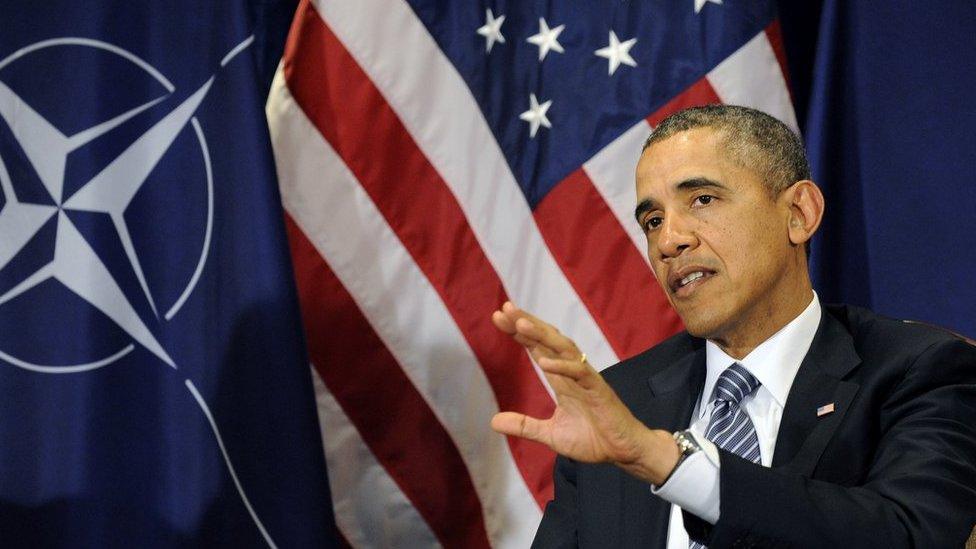
- Published15 October 2019
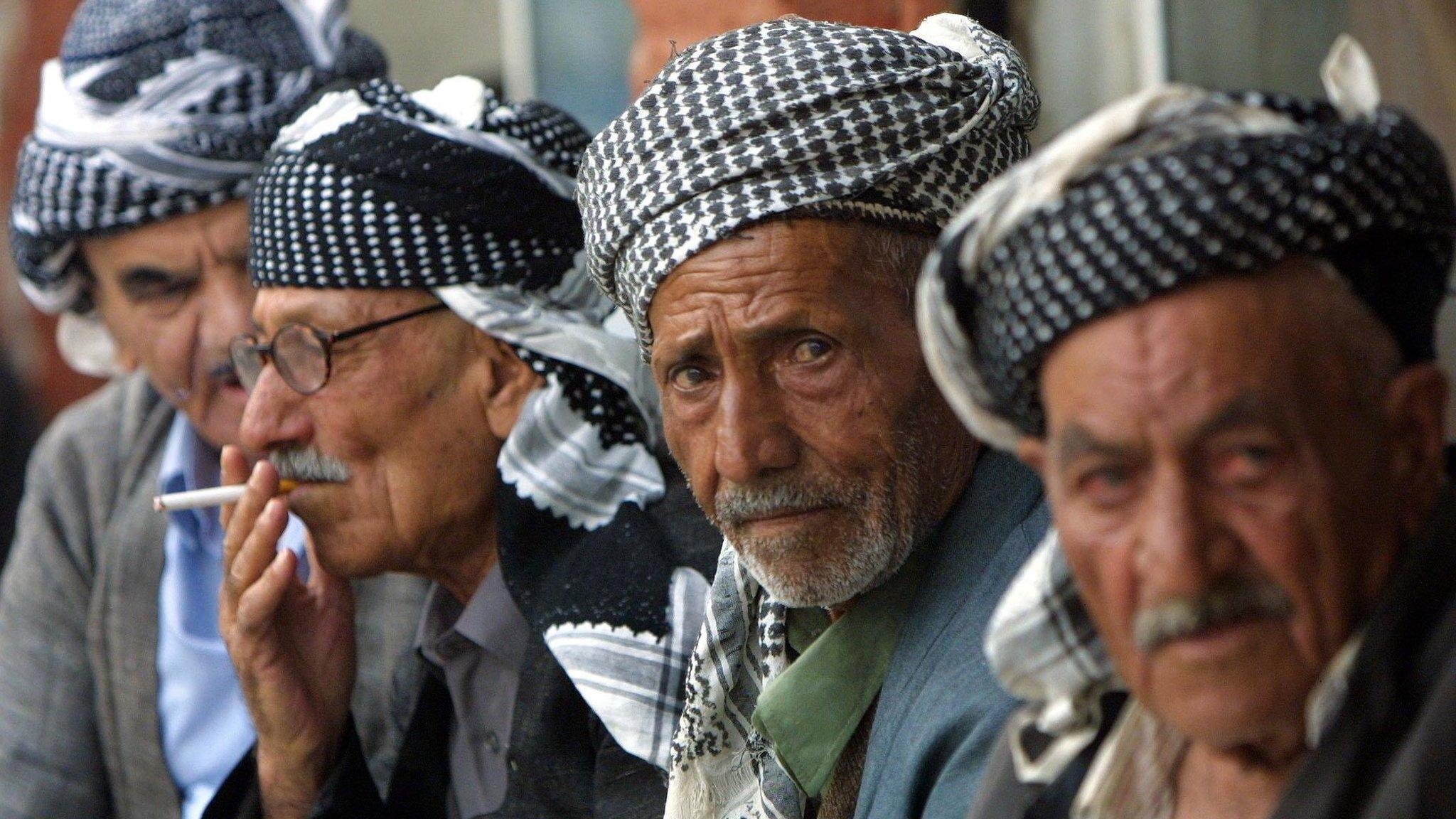
- Published5 January 2017
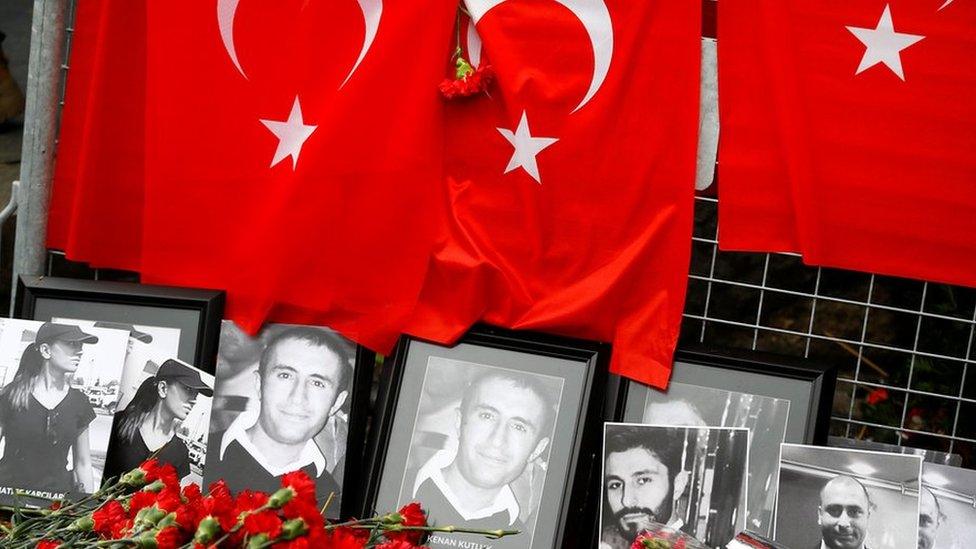
- Published14 March 2016

- Published14 March 2016
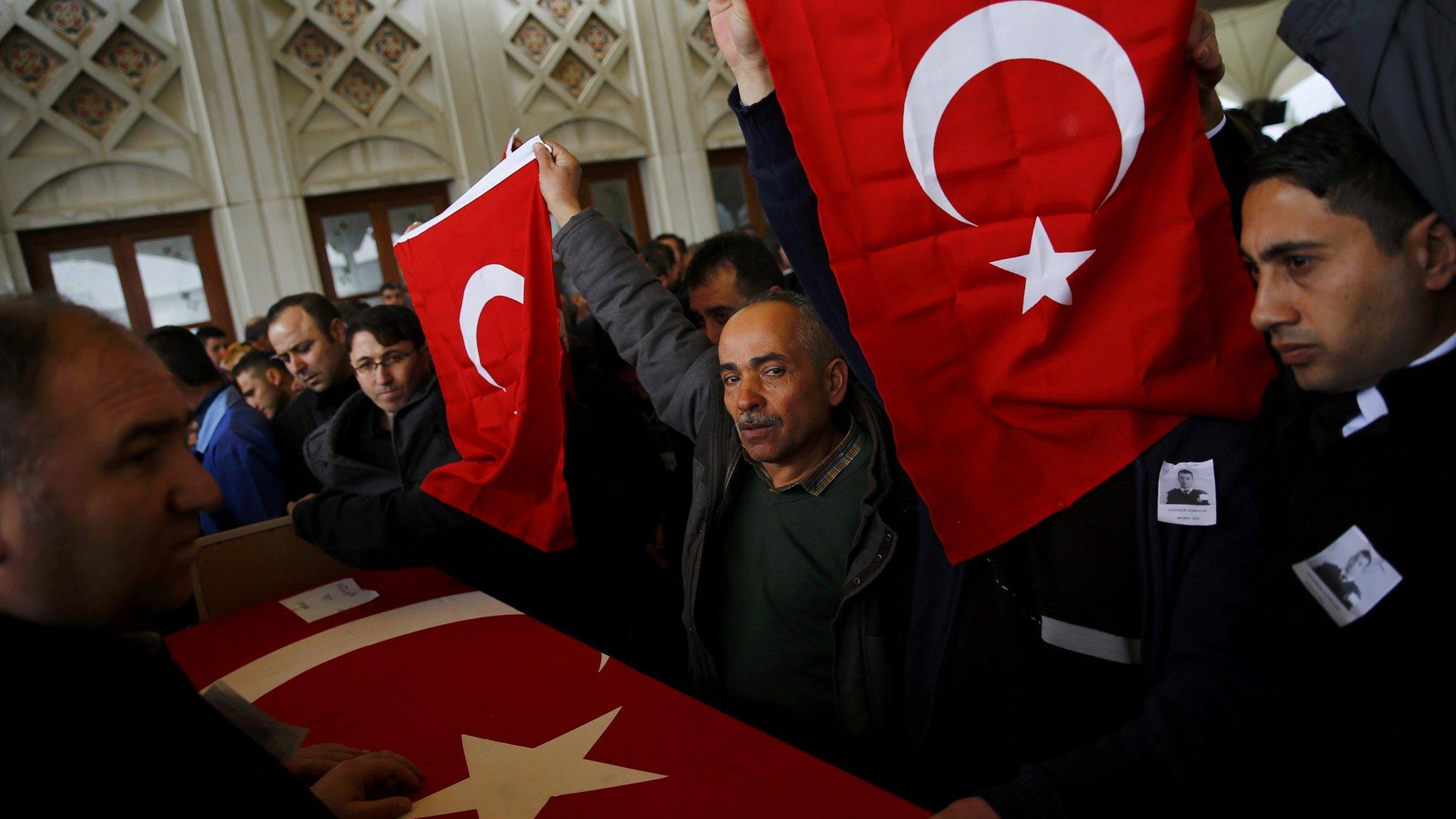
- Published10 February 2016
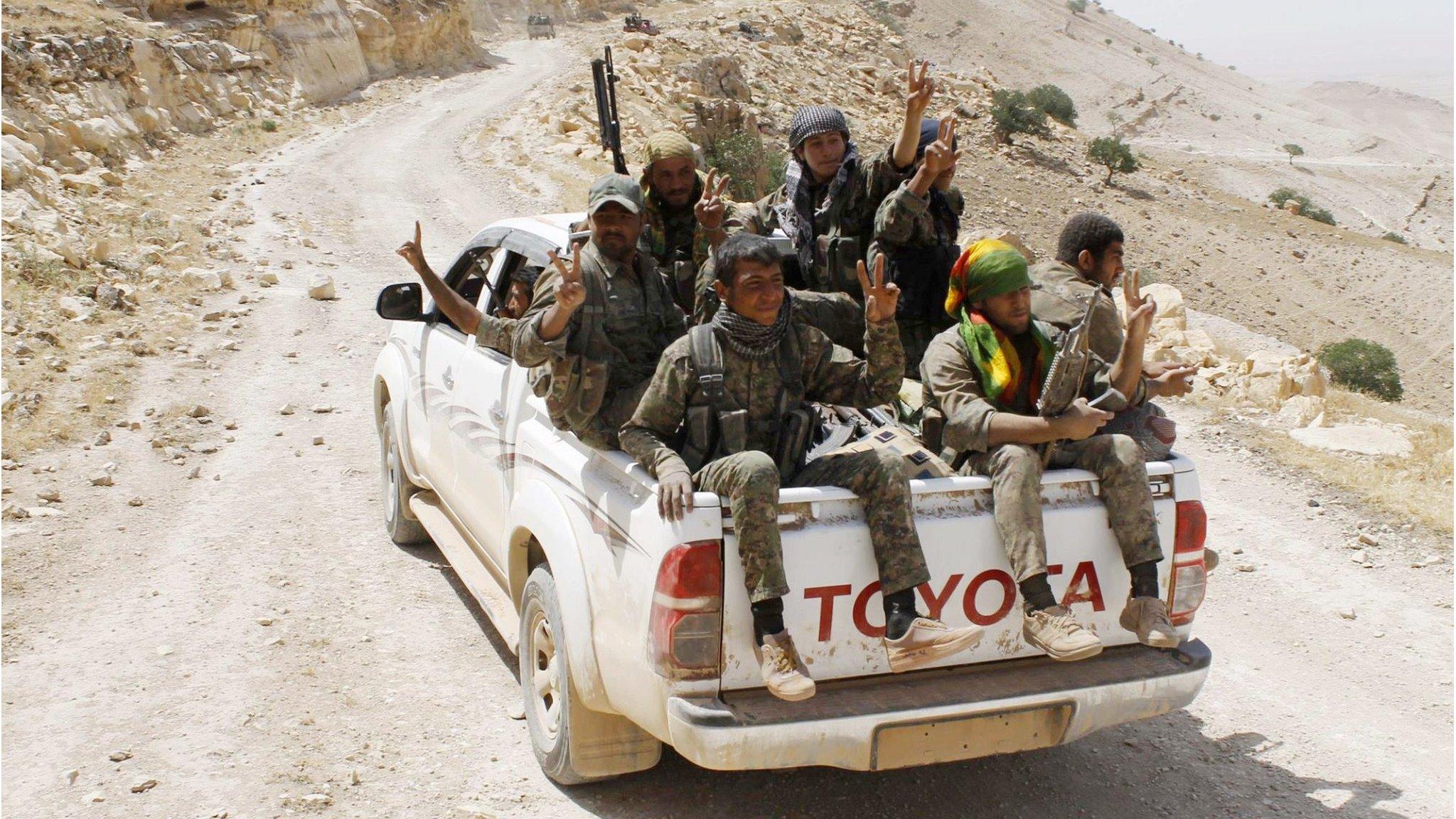
- Published27 January 2016
